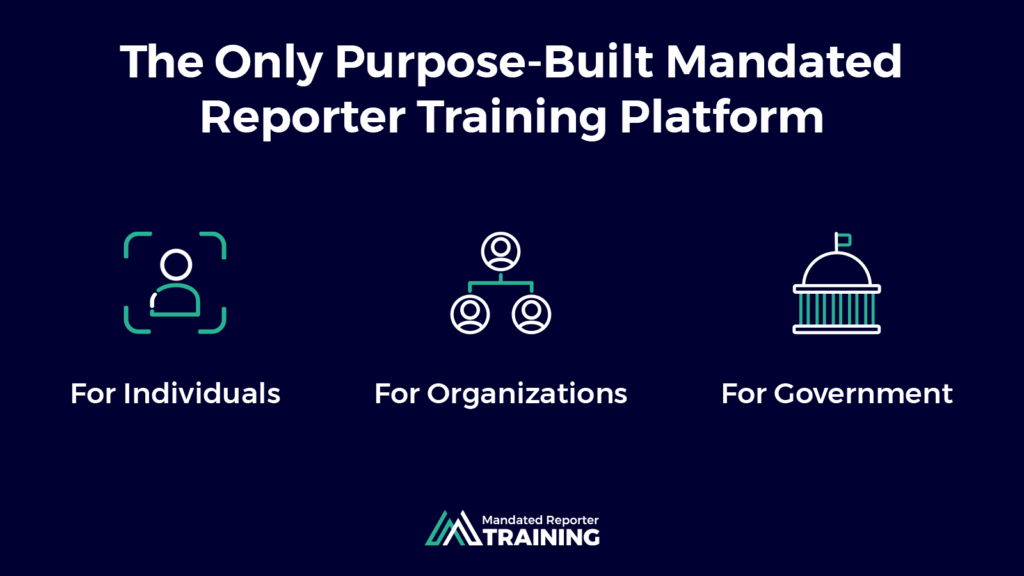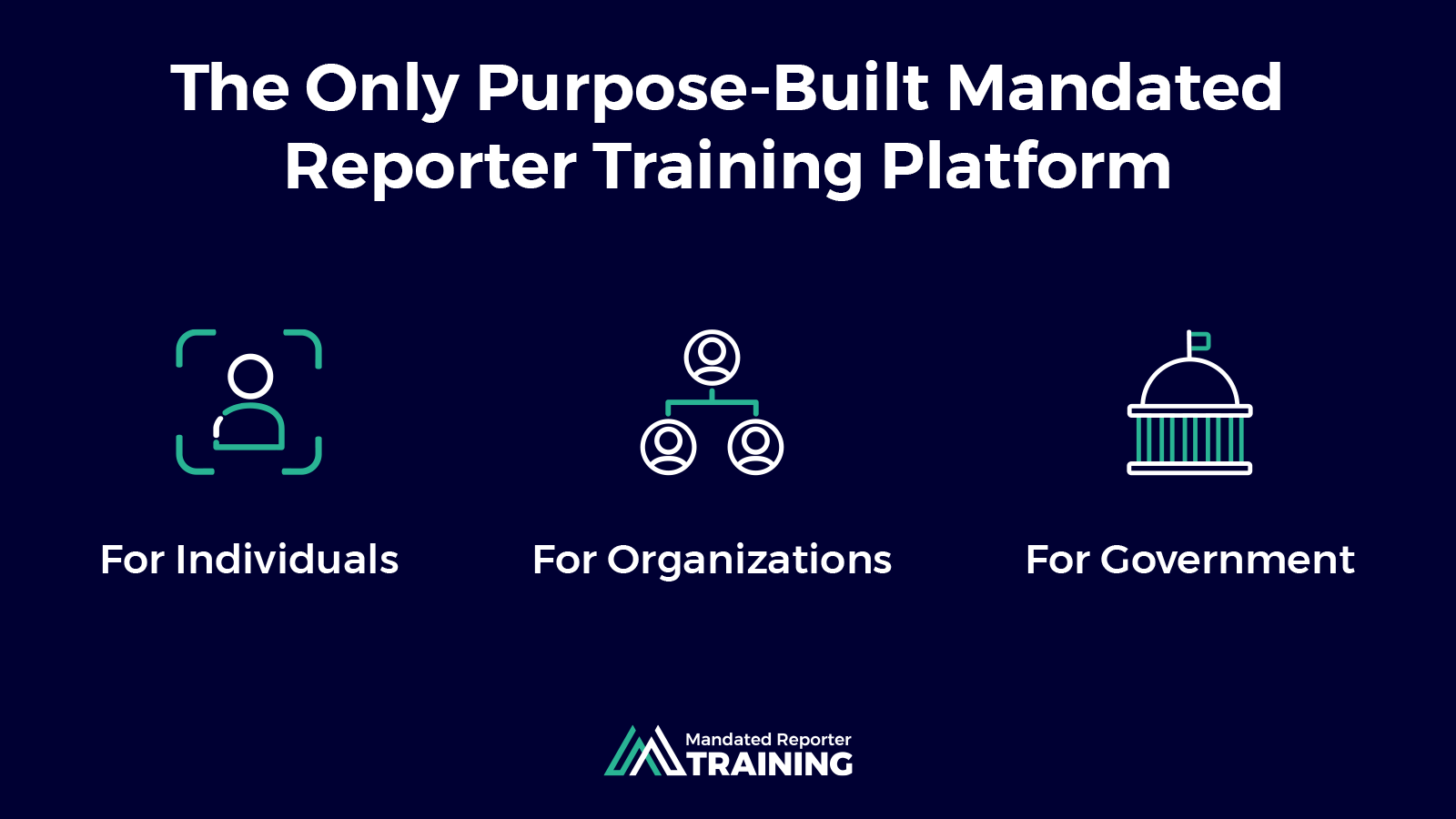
Navigating NY Mandated Reporter Training: Protecting Children and Vulnerable Adults
In New York State, certain professionals are legally obligated to report suspected cases of child abuse or maltreatment. This responsibility falls on individuals designated as mandated reporters. Understanding the nuances of NY mandated reporter training is critical for fulfilling this duty effectively and protecting vulnerable populations.
This comprehensive guide delves into the specifics of NY mandated reporter training, outlining who is required to take it, what the training covers, how to access it, and the crucial role it plays in safeguarding children and vulnerable adults from harm. We’ll also explore the legal framework underpinning these requirements and examine the potential consequences of failing to report suspected abuse.
Who is a Mandated Reporter in New York?
New York State law defines a specific list of professions that are considered mandated reporters. These individuals, due to the nature of their work, are more likely to encounter children or vulnerable adults who may be at risk of abuse or neglect. The list includes, but is not limited to:
- Physicians, registered nurses, and other healthcare professionals
- Teachers, school officials, and child care providers
- Social workers, counselors, and therapists
- Law enforcement officers
- Substance abuse counselors
- Employees of facilities and agencies that provide services to children or vulnerable adults
It is important to note that this is not an exhaustive list. If you are unsure whether your profession is included, it is best to consult the official New York State Office of Children and Family Services (OCFS) website or seek legal counsel. Understanding your status as a mandated reporter is the first step in fulfilling your legal and ethical obligations.
The Purpose of NY Mandated Reporter Training
NY mandated reporter training is designed to equip mandated reporters with the knowledge and skills necessary to identify and report suspected cases of child abuse or maltreatment. The training aims to:
- Increase Awareness: Educate reporters on the different types of abuse and maltreatment, including physical abuse, sexual abuse, emotional abuse, and neglect.
- Improve Identification Skills: Provide reporters with tools and techniques to recognize signs and symptoms of abuse or maltreatment.
- Clarify Reporting Procedures: Explain the proper procedures for reporting suspected abuse or maltreatment to the appropriate authorities.
- Address Legal Obligations: Inform reporters of their legal responsibilities under New York State law, including the consequences of failing to report.
- Promote a Culture of Safety: Foster a culture of safety and support for children and vulnerable adults within communities and organizations.
By providing comprehensive training, New York State aims to empower mandated reporters to act as vital safeguards for those who are most vulnerable.
What Does NY Mandated Reporter Training Cover?
NY mandated reporter training covers a wide range of topics related to child abuse and maltreatment. The specific content may vary slightly depending on the training provider, but generally includes:
- Definitions of Abuse and Maltreatment: Detailed explanations of the different forms of abuse and maltreatment, including legal definitions and examples.
- Indicators of Abuse and Maltreatment: Identification of physical, behavioral, and emotional indicators that may suggest a child or vulnerable adult is being abused or neglected.
- Risk Factors: Exploration of factors that may increase the risk of abuse or maltreatment, such as poverty, substance abuse, and domestic violence.
- Reporting Procedures: Step-by-step instructions on how to report suspected abuse or maltreatment to the Statewide Central Register of Child Abuse and Maltreatment (SCR).
- Legal Protections for Reporters: Information on the legal protections afforded to mandated reporters who make good-faith reports of suspected abuse or maltreatment.
- Consequences of Failure to Report: Explanation of the potential legal and professional consequences of failing to report suspected abuse or maltreatment.
- Confidentiality: Discussion of the importance of maintaining confidentiality in reporting and investigations.
- Cultural Competence: Awareness of cultural factors that may influence the identification and reporting of abuse or maltreatment.
The training emphasizes the importance of objective observation and documentation, as well as the need to report any suspicions, even if there is no definitive proof of abuse or maltreatment. [See also: Child Protective Services Investigations]
Accessing NY Mandated Reporter Training
NY mandated reporter training is readily available through various channels. The New York State Office of Children and Family Services (OCFS) offers a free online training course that meets the state’s requirements. This course is a popular option for many mandated reporters due to its accessibility and convenience.
In addition to the OCFS online course, many professional organizations and agencies offer NY mandated reporter training. These organizations may provide in-person training sessions, webinars, or online courses. Some employers may also offer training to their employees as part of their professional development programs.
When choosing a training provider, it is important to ensure that the course is approved by OCFS and meets the state’s requirements. Completing an unapproved course may not fulfill your legal obligation as a mandated reporter.
To find approved training providers, you can visit the OCFS website or contact your professional organization for recommendations. Many hospitals, schools, and social service agencies also offer or recommend specific NY mandated reporter training programs.
The Importance of Ongoing Training
While completing the initial NY mandated reporter training is essential, it is also important to engage in ongoing training and education. The field of child abuse and maltreatment is constantly evolving, with new research and best practices emerging regularly. Staying up-to-date on these developments can help mandated reporters improve their skills and knowledge and better protect vulnerable populations.
Many professional organizations offer continuing education courses and resources related to child abuse and maltreatment. These courses may cover topics such as:
- New trends in child abuse and maltreatment
- Trauma-informed care
- Working with children who have experienced abuse
- Cultural competence in child abuse reporting
By participating in ongoing training, mandated reporters can demonstrate their commitment to protecting children and vulnerable adults and enhance their ability to fulfill their legal and ethical obligations. [See also: Recognizing Signs of Child Neglect]
The Legal Framework: Social Services Law § 413
The legal basis for NY mandated reporter training and the responsibilities of mandated reporters is found in Social Services Law § 413. This section of the law outlines the specific professions that are considered mandated reporters, the requirements for reporting suspected abuse or maltreatment, and the penalties for failing to report.
Social Services Law § 413 states that mandated reporters must report suspected abuse or maltreatment when they have reasonable cause to suspect that a child is being abused or maltreated. The report must be made to the Statewide Central Register of Child Abuse and Maltreatment (SCR), also known as the hotline. The law also provides immunity from liability for mandated reporters who make good-faith reports of suspected abuse or maltreatment.
Understanding the provisions of Social Services Law § 413 is crucial for all mandated reporters in New York State. It clarifies their legal obligations and provides guidance on how to fulfill their responsibilities effectively.
Consequences of Failing to Report
Failing to report suspected child abuse or maltreatment can have serious consequences for mandated reporters. Under New York State law, mandated reporters who fail to report can face criminal charges, civil lawsuits, and professional disciplinary actions. The specific penalties may vary depending on the circumstances of the case.
In addition to legal consequences, failing to report can also have significant ethical implications. Mandated reporters have a moral and ethical obligation to protect children and vulnerable adults from harm. Failing to report suspected abuse or maltreatment can betray that trust and put vulnerable individuals at risk.
The potential consequences of failing to report underscore the importance of taking NY mandated reporter training seriously and fulfilling your legal and ethical obligations. [See also: The Role of the Statewide Central Register]
The Role of the Statewide Central Register (SCR)
The Statewide Central Register of Child Abuse and Maltreatment (SCR) is a 24-hour hotline that receives reports of suspected child abuse and maltreatment in New York State. Mandated reporters are required to report suspected abuse or maltreatment to the SCR as soon as possible after forming a reasonable suspicion.
The SCR is staffed by trained professionals who assess each report to determine whether it meets the criteria for a child protective services investigation. If the report meets the criteria, it is forwarded to the local child protective services agency for investigation.
The SCR plays a vital role in protecting children from abuse and maltreatment in New York State. By providing a centralized reporting system, the SCR ensures that all reports of suspected abuse or maltreatment are promptly and thoroughly investigated.
Conclusion: Empowering Mandated Reporters to Protect Vulnerable Populations
NY mandated reporter training is an essential component of protecting children and vulnerable adults from abuse and maltreatment in New York State. By providing mandated reporters with the knowledge and skills necessary to identify and report suspected abuse, the training empowers them to act as vital safeguards for those who are most vulnerable.
Understanding your responsibilities as a mandated reporter, accessing appropriate training, and staying up-to-date on best practices are crucial steps in fulfilling your legal and ethical obligations. By working together, we can create a safer and more supportive environment for all children and vulnerable adults in New York State.
The effective implementation of NY mandated reporter training is a shared responsibility, requiring collaboration between state agencies, professional organizations, and individual mandated reporters. Continued investment in training and education is essential to ensure that mandated reporters are equipped to meet the evolving challenges of child abuse and maltreatment. The ultimate goal is to create a system that effectively protects vulnerable populations and holds perpetrators accountable for their actions.

